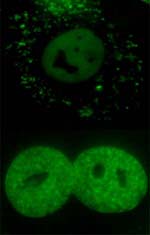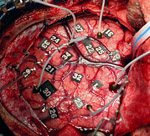Tip sheets highlight timely news and events at Washington University in St. Louis. For more information on any of the stories below or for assistance in arranging interviews, please see the contact information listed with each story.
Subtracting side effects
Safer steroids

Doctors have used steroids for decades to control autoimmune and inflammatory diseases such as rheumatoid arthritis, lupus and inflammatory bowel disease, but their potentially serious side effects — including bone loss, obesity, diabetes and growth impairment — have made it difficult to keep patients on the drugs for prolonged periods of time. Endocrinologist Louis Muglia, M.D., Ph.D., associate professor of molecular biology and pharmacology and of pediatrics at Washington University School of Medicine in St. Louis, and colleagues have recently identified a key component of steroids’ effects on the immune system, a possible first step toward developing new drugs that can offer the same benefits as steroids without the many potentially serious side effects.
The eyes have it!
There’s more to vision than meets the eye

We use our eyes to see, but a good deal of recent research has demonstrated that the eyes are responsible for other functions, too. Russell N. Van Gelder, M.D., Ph.D., assistant professor of ophthalmology and visual sciences and of molecular biology and pharmacology at Washington University School of Medicine in St. Louis, has teamed with researchers at several other institutions to learn more about the eye’s second, non-visual system that is important to the body’s internal clock, as well as to other functions such as hormone release. Studying mice, the research team found that even in blind animals, it is important for the eye’s non-visual system to continue working. They believe damage to this system in the eye may contribute to several health problems in humans, even in people with normal vision.
Safer brain surgeries
Better brain imaging helps surgeons avoid damage to language functions

Advances in neurosurgery have opened the operating room door for an amazing array of highly invasive forms of brain surgery, but doctors and patients still face an incredibly important decision – whether to operate when life-saving surgery could irrevocably damage a patient’s ability to speak, read or even comprehend a simple conversation. Now, researchers at Washington University in St. Louis are developing a painless, non-invasive imaging technique that surgeons here are using to better evaluate brain surgery risks and to more precisely guide operations so that damage to sensitive language areas is avoided. The breakthrough could improve odds of success in an increasingly common surgery in which damaged sections of a patient’s temporal brain lobe are removed in an effort to alleviate epileptic seizures. November is National Epilepsy Awareness Month.
Kidney failure threat
Rare genetic disorder linked to protein discovered at Washington University

A protein that helps keep immune system cells from mistakenly swallowing and destroying healthy cells has been linked to an inherited disorder with symptoms similar to severe food poisoning, according to researchers at the Washington University School of Medicine and the University of Newcastle in the United Kingdom. John Atkinson, M.D., the Samuel Grant Professor of Medicine at Washington University School of Medicine in St. Louis, says the results make it possible to genetically screen patients for one form of atypical hemolytic uremic syndrome (HUS), a rare but potentially life-threatening condition linked to excessive cell damage, blood clots and kidney failure. Normal HUS, often in the headlines because of food-related outbreaks, is caused by consumption of a toxic form of the bacteria E. coli.